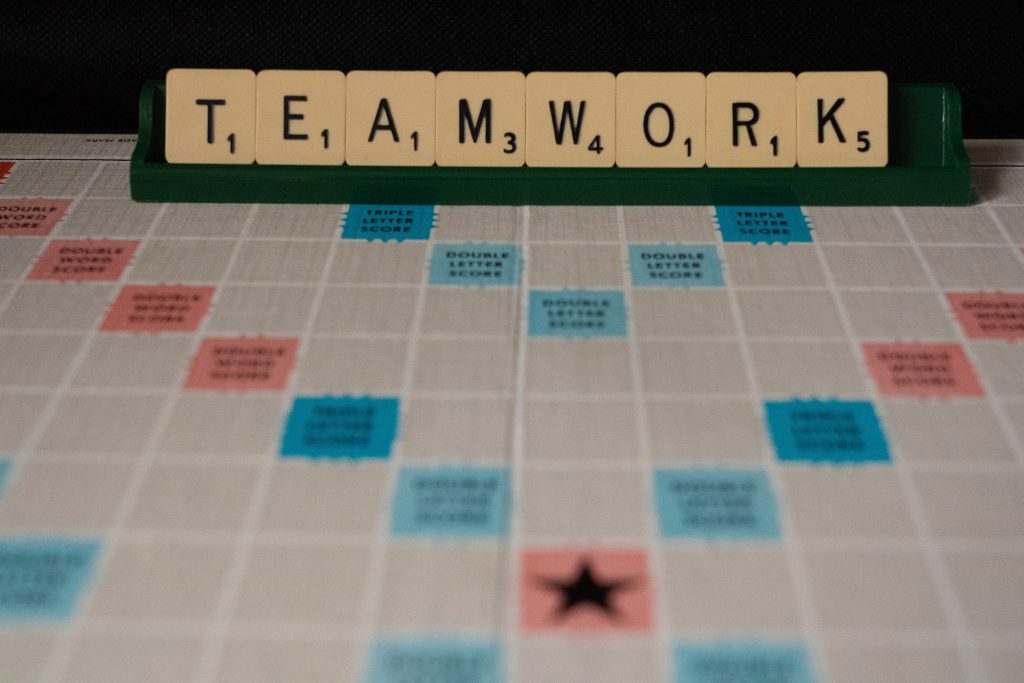Things have changed, and now more than ever, we need to change our approach to how we work and interact with others in our workplace.
Businesses are based on people, and those people often have to deal with issues outside work. It’s important that you, as a leader, not only support your people during challenging times but recognise that everyone’s different experiences and backgrounds mean they’ll all bring different ideas and approaches to the table. Listen to them, learn from them, support them and make them feel valued – the payback you’ll get from a happy and motivated team will always be worth it, and business will flourish.
Focussing purely on work and ignoring the challenges people face elsewhere will harm employee wellbeing and engagement. Your team will be less motivated, less productive and less likely to stay, and none of that is good for business – you will get overwhelmed and stressed.
But things aren’t so straightforward, we sometimes feel stressed and overwhelmed, and it is natural because there is so much pressure from outside, so much information to take on board, and we, as human beings, usually overcomplicate things.
We can achieve more with less stress and instead, focus on our well-being, and everyone’s productivity will increase.

I’ve been helping business owners and employees learn how to increase time efficiency and productivity using a non-traditional productivity approach, with simple-to-follow methods. The main focus is to achieve what people want by simplifying their lives, and running their businesses effectively while still making time for the other things they wish to do. Start with a non-traditional productivity method that involves the person as a whole, and not only focuses on work productivity.
The Method that I created is called The S.O.U.L Productivity Method and can help not only leaders to get results, but if each and everyone implements this method in our own lives, we can all live a more enjoyable life.
The S.O.U.L© Productivity Method
S for Simplify
It’s time to put yourself FIRST, and start asking some big questions, the questions with no easy answers, but that will help to clarify the way forward.
Start looking at your WHY, your purpose, in life and business. Your big Why?
If you are an entrepreneur or business owner:
• Are you aware of why the business exists?
• Is your business WHY aligned to your personal one?
• Have you grown and forgotten the WHY on the way?
If you are part of a leadership team of a business:
• Does your role purpose align with your own purpose and the business purpose?
• Are the right people in the right role, that is most beneficial for the business?
• Are the people in the team clear about their own roles and what they are expected to do?
If you have that crystal clear, then planning and taking action will be so much easier.

O for Organise (and Optimise)
In this step, we work towards decluttering. Things become cluttered in business, and we develop blockages in the cogs.
What are the main distractions that don’t allow us to see the problems? Notifications or social media – have you ever said you will quickly check social media and then end up scrolling for hours looking for fluffy kittens, silly Tik Toks and funny pranks, and then we feel super stressed because we need to finish what we are supposed to be doing in the first place and the guilt kicks off! When we clear the clutter (physical and mental), we can focus better on what we need to do.
If we start prioritising what we need to do or work on, we start to optimise our time effectively, and we can then have free time to do what we want to do – that means setting boundaries and learning to say NO!
Believe me, saying no can be very liberating! People will start to respect your boundaries, and you will be using your time more efficiently.
U for Understand
It’s not only about if you understand yourself and what you want… it is so much more.
It is about understanding your whole environment, in the business, in your personal life and your social life – but also understanding the environment of the people who work with you. It is about understanding your team, their flow, their strengths and weaknesses and their needs to help them perform better. What’s happening in their lives that can impact the culture of your business? Can you support them to feel contained understood and listened to?
If you have a clear answer to these questions, you will be ahead of the game. People make businesses great – the different contributions of the team helps the growth of the business.
Understanding is also knowing the different Energy Cycles – where and when are you performing the best and when you feel low, so you can plan what you need to do appropriately in your favour and not against it.
L for Leverage
The final piece of The S.O.U.L Productivity Method is all about LEVERAGE
This is the one that I love the most because it is so under-utilised, but it gives you so much potential to grow faster.
A small secret, I was quite lazy growing up and loved to delegate what I didn’t like to do myself in exchange for a favour or small fee…
Try other ways, and be creative. Automate, use tools and look around. Always look around, look at what most of the people are doing and see if it is giving them results, try yourself, but if that doesn’t give you the results, don’t stick to it and look again to see if something else could work better.
Leverage is not taking advantage of others – it is working smartly and using the things that can help you to lift a heavy weight easily. It is delegating when you can and focusing on what you do best, leaving what you don’t to the people that can do better and enjoy that work. You will trust your team emphatically to do what they are employed to do. When your team feel trusted to do their thing, they feel empowered, listened to and valued. This all leads to highly motivated staff who know their worth and want to help you and your business succeed.
Know your strengths, know your weaknesses and see how you can team with others to help you with the things you are not so good at. And you will get the best out of yourself and the others.
Use the tools at hand to improve your performance, and when something works for you, stick to it instead of bouncing from on to tool to another to try everything, because that will spark your overwhelm.

I really believe in putting people at the heart of things – traditional productivity methods are based on work and key metrics, but that ignores the fact that businesses are powered by people and people have lives (and problems) outside work to deal with. No one can entirely disconnect from their personal life, so we need to recognise that when we understand people and listen to them, they’ll feel more valued. Listen to people, treat them well and – more often than not – they’ll pay you back with loyalty and productivity.
And finally, put yourself first, because when you are clear on what you want, where you want to go and most importantly your why then you will start to nurture yourself, and all the rest will fit in place smoothly.
About Claudia Romero
Claudia Romero is an Edinburgh based graduate, serial entrepreneur, and busy mum of three boys. Coming to the UK from Chile over a decade ago, it was not easy for her to keep everything running smoothly, especially with no family around to help. Instead of looking for a 9 to 5 job, she combined her professional and personal experience to start two new businesses that gave her more flexibility and freedom.
She helps her clients reduce the frustration and lack of control that comes with trying to keep up with their family’s every project, activity, and daily tasks, and provides them with the tools and strategies that allow them to be more productive, have time for self-care, and pursue their own dreams while fulfilling their work, social, and family obligations.
This article originally appeared in her ” Startup Today Magazine ” and can be viewed here


